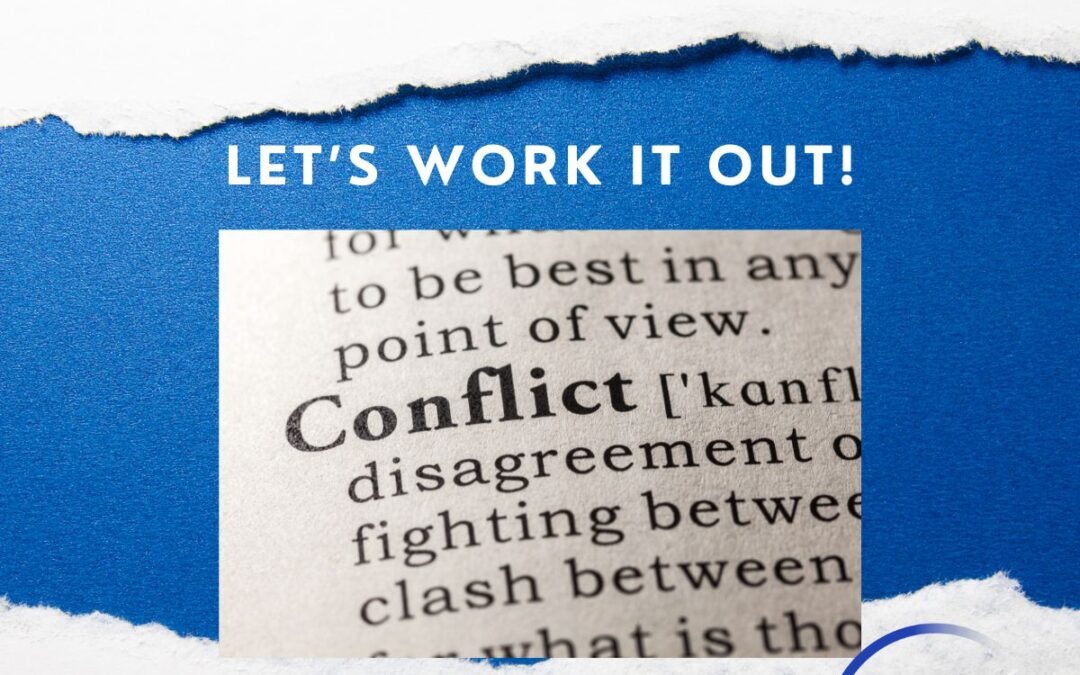Workplace conflicts stemming from varying personalities and fixed mindsets are inevitable. Successfully managing these conflicts goes beyond traditional resolution methods; it requires a deep understanding of individual behaviors (DISC, EQ, Metaprograms, etc.), effective trust-building, and the ability to overcome resistance to change. In this article I want to discuss some advanced strategies I use my coaching and training to handle conflicts with varying personalities and rigid mindsets, working to transform potential workplace disagreements into collaborative improvement.
Decoding Personality Clashes
Personality differences can significantly influence workplace conflict dynamics. Understanding this can prevent many conflicts from happening in the first place. Tools like the Predictive Index or DISC profiles can be instrumental in this process. A few weeks ago I published a newsletter on DISC profiles, scroll back through the Empowered Path to find more detailed information about it. By using one or more of these assessments in team development sessions, organizations can help employees understand not just their own, but also their colleagues’ work styles and communication preferences. This will help with understanding, enabling mutual respect during hard conversations and can help reduce personality clashes by aligning team members’ strengths with appropriate responses and behaviors.
Gaining Trust through Transparent Leadership
Trust is essential in managing conflicts, especially when personalities clash or when there is resistance to change. Creating a transparent environment where decisions are communicated clearly and where every team member feels heard is key! Leaders can embrace this by being consistent in their actions, following through on commitments, and being open about the challenges the team or organization faces. Regular, structured feedback sessions can also promote a culture of trust, as they demonstrate leadership’s commitment to inclusive and fair management practices.
Changing Resistance Using Empathetic Engagement
Change resistance is often rooted in fear or discomfort with the unknown. Leaders can address this effectively by using an empathetic approach. with teams This involves not just listening to concerns but actively empathizing and tuning into the emotional heartbeat of their teams. When employees feel understood, they are more likely to open up about their true concerns, which can be addressed more effectively than surface-level resistance. I hold workshops on emotional intelligence and empathy which can equip leaders with the skills needed to lead such conversations, helping to ease decision making transitions and ultimately, reduce conflict.
Encouraging Growth Mindsets Among Teams
Developing a growth mindset can significantly alter how conflicts are perceived and handled within workplaces. By creating an environment where challenges are viewed as opportunities to learn and grow, leaders can mentor employees to not be afraid of change and innovation. This can be further supported by providing training in adaptive, creative thinking and problem-solving techniques, which can help individuals see beyond immediate conflicts to the potential benefits of new approaches and long-term solutions.
Collaboration from Divergent Viewpoints
Conflicts, when managed well, can become a source of innovation for problem solving. Differing viewpoints, if heard respectfully and constructively, can lead to breakthrough ideas and solutions that homogeneous teams might not have conceived before. Organizing cross-functional teams to tackle projects or resolve conflicts can bring different perspectives together, leading to more creative and comprehensive solutions. Additionally, by celebrating successes that come from these collaborations, it can reinforce the value of unique perspectives and encourage a more cooperative approach to conflict resolution.
How to Handle Disputes
To address conflicts systematically, leaders can implement structured conflict resolution frameworks that guide employees through the process of identifying, discussing, and resolving conflicts. These frameworks should include clear steps and guidelines on how to handle disputes (standard operating procedures), provide resources for mediation or facilitation if needed, and establish protocols for what happens if there is escalation. Training employees on these frameworks makes sure that everyone knows.
Handling conflicts in a workplace with different personalities and mindsets requires thoughtful strategies that go beyond conventional communication approaches. By understanding personality dynamics, building trust through transparency, addressing change resistance with empathy, promoting adaptive thinking, leveraging conflicts for innovation, and implementing structured resolution frameworks, leaders can take potential conflicts and turn them into valuable opportunities for individual and organizational development. These practices guided by either an executive coach, or professional development trainer, not only improve the current work environment, but also will contribute to building a resilient, innovative, and cohesive organizational culture.
What is your experience with office conflicts? How did you deal with it? Did I miss anything in this article? If so, let me know. Please share this article with anyone you think might like to learn more about this topic. Find me on social and let’s keep this conversation going!
#OfficeDramaSolved #ConflictResolution #WorkplaceWisdom #DiverseWorkStyles

